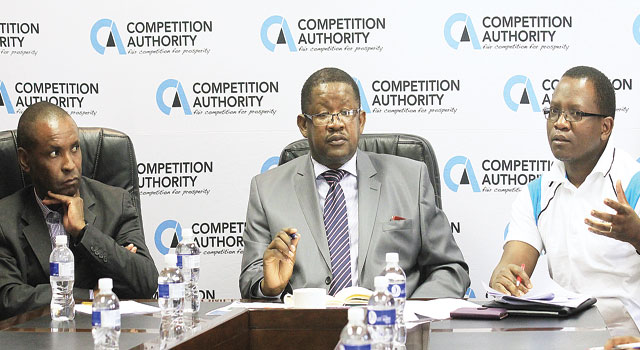The private sector has been accused of charging government exorbitant prices for goods and services and then failing to deliver projects on schedule and within budget. However, the private sector has hit back, saying inefficient procurement systems at government enclave, coupled with disregard for functionality and obsession with unnecessary specifics, has resulted in price hikes and government schools that look like hotels. On World Competition Day, December 5, Competition Authority (CA) chief executive officer Thula Kaira and director of policy and advocacy at Botswana Confederation of Commerce Industry and Manpower (BOCCIM)Dichaba Molobe discussed the issue at length in a panel discussion titled “competition issues in public procurement.”
Botswana’s construction sector has especially been identified as one of the most expensive in the world, as they charge government exorbitant prices and then deliver shoddy projects at less value for money. At the Construction Pitso earlier this year, industry captains acknowledged that some contractors have taken advantage of lack of supervision capacity on both consultants and contractors by doing shoddy work or overcharging on claims for work done. The same sentiments were raised by Thula Kaira, chief executive officer of the CA and countered by Dichaba Molobe, director of policy and advocacy at BOCCIM, last week during a panel discussion on “competition issues in public procurement”.
Kaira accused the private sector of hiking prices unnecessarily when dealing with government and lowering prices when dealing with other private sector companies.
“This should not be allowed. The private sector must assist government to pay for goods and services at economic prices,” he said.
Kaira added that bidders should not be concerned with the budget of the procuring entity but must only consider the cost of supplying required goods and services. He also encouraged procurement entities to do some background check to at least ascertain the average cost of the goods and services that they are looking for. To address the situation, said Kaira, the CA has educated government procurement entities on how to design tenders that maximize competition.
However, Molobe said the private sector over charges government because government is obsessed with over specification.
“Compare Goodhope Senior Secondary School and Maruapula School, two institutions that serve the same purpose. One is simple, functional and cost less, while the other looks like a hotel and cost government P1bln,” he said.
Molobe also faulted government for its cumbersome procurement systems that place an administrative burden on bidders and increase the cost of doing business, which results in price hikes. He added that government tender specifications are not clear and eventually lead to huge variations in price. Another concern that was raised by the private sector was the huge time lag between submitting bids and awarding of contracts. Bidders are forced to make provisions for cost escalations during such delays by increasing their bid prices.
“There is also a need to minimize requirements that are placed on bidders. Costs of certifications, samples and copies are later built on to the bid prices. We feel that tests and samples should be required only from shortlisted bidders,” said Molobe.
Kaira agreed, saying the time lag sometimes results in some companies re-negotiating tenders or failing to efficiently complete the job within the required specifications, time and budget. Molobe also accused government of failing to negotiate prices, saying it is bad for a public enterprise not to be concerned with value for money.
“The private sector doesn’t pay exorbitant prices for goods and services, government does,” said Molobe.
He added that government has been found lacking on issues of procurement and project management.
“When the private sector does jobs for the private sector they charge less and deliver the job on time and within budget,” he said.
He gave an example of the Jwaneng Mine cut 8 project which cost
P24bln and is being delivered efficiently, within budget and on time by the private sector. In comparison, said Molobe, government’s flagship Morupule B project, which cost P11bln, was marred by delays and cost over runs.

